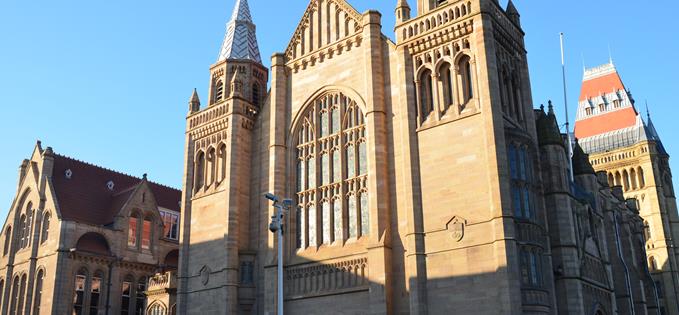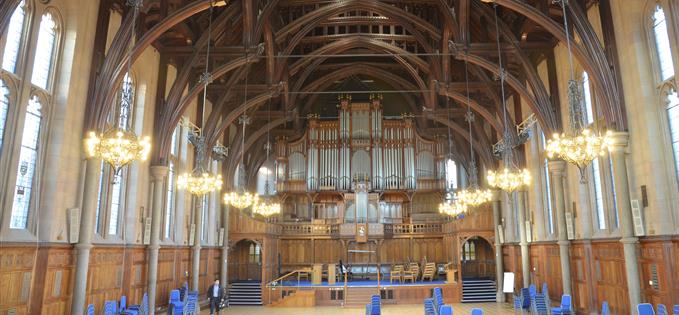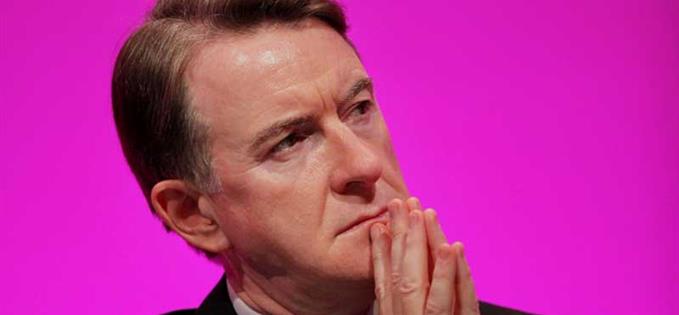PETER MANDELSON: two words in British politics that get people pointing and shouting.
My reputation becomes more positive the closer you get to me, but when filtered through the media it tends to become distorted.
The controversial former Hartlepool MP, cabinet minister, European commissioner and ‘Prince of Darkness’ wants to take on the role of Chancellor of the University of Manchester at the age of 62. He will take over from property developer Tom Bloxham.
Private Eye magazine tagged Mandelson the ‘Prince of Darkness’ after he became the first Brit to be labelled a ‘spin-doctor’.
He’s certainly led a lively life at the heart of the Westminister political system, credited with creating the mythical moniker of ‘New Labour’ and helping re-invent a party prone to eating itself into the well-oiled machine behind super slick PM Tony B.
Still, this is a Manchester magazine so in an interview with Peter Mandelson, the parochial question demands to be asked first: What connection does the Oxford-educated, Hampstead-born life-peer Baron Mandelson have with the University of Manchester?
“I have visited the University in the past. I have often been in the city and region during my time before, during and after government,” says Mandelson. He then lists a series of initiatives when he was Secretary of the Board of Trade and in various other governmental roles.
In other words there is very little to no connection. Since he was also performing the same job elsewhere in the country his best connection might be that his surname has three syllables and the first is ‘Man’.
 University of Manchester
University of ManchesterBut is any of that important? If cities such as Manchester only made appointments on criteria of residency or intimate knowledge they’d be putting uncompetitive and anti-intellectual limitations on themselves. There’s a wide world out there.
What will matter is Mandelson’s commitment to the University of Manchester within the parameters of the job. These are fairly narrow. As he himself says: “The Chancellor is a ceremonial role to support the Vice-Chancellor. So what I want to do is make a strong contribution to the University through advice and guidance informed by my experience. I am well aware of the university’s achievements, its Nobel Laureates and its nature as a world-class asset.”
That’s the least we’d hope for. So what else can he deliver?
Mandelson turns his focus on the aforementioned wider world. “I bring knowledge, skills and energy drawn from my political experience at home and abroad. I have negotiated trade deals in every continent. I want to use this experience to be a multiplier for the University. I want the University to be at the top of the tree for international research."
Mandelson's vision of the University becoming a worldwide force in Higher Education has in some respects already been achieved. Some rankings put it as high as 38th in the world and 5th in the UK. The 2014 Times Higher Education World University Rankings dropped it to 52nd in the world and 12th in Europe. Given the number of universities across the globe this probably isn’t too bad, but of course we'd all like it to be better.
Mandelson, who has always been a strong supporter of the European Union, continues with the internationalist theme.
“We have a competitive advantage with the English language,” he says. “Other universities across the Continent and elsewhere are now delivering courses exclusively in the English language but they have some way to go before students get the type of immersion they get by coming to a university such as Manchester.
“What I want to help achieve is a higher number of really first class individuals joining the University from across the world. If we can increase academic achievement by accessing the best talent the University will play more actively on the international stage. This in turn will not only deliver prestige and benefits for the University but also across the region and indeed for the country.”
Perhaps unsurprisingly, Mandelson is proposing to grease the wheels internationally. Some might say he’s the perfect man to do this. Some might say it’s his forte.
 Whitworth Hall, University of Manchester
Whitworth Hall, University of ManchesterOne Manchester-based former Labour Party colleague, who wished to remain anonymous, tells me: “He would be good for Manchester. Peter has an unerring ability to focus in on a complicated problem and identity what needs to be done. He’d be an excellent recruitment.”
An insider at the University, also anonymous, has different thoughts: “His party political background will be a problem. He is too associated with the Labour Party, with the whole political system, which hasn’t had the best press recently. A Chancellor should stand aloof, above all that.”
Party politics enters the interview with mention of how the University fits in with the whole Northern Powerhouse idea promoted by Manchester’s Labour city council and the Conservative Chancellor of the Exchequer, George Osborne.
“The Northern Powerhouse scheme intrigues me. But I think the government is taking with one hand while giving with the other. The austerity measures have hit Northern cities particularly hard. I broadly welcome the idea of course, and the last Labour government consistently demonstrated a commitment to decentralisation. I, for example, sponsored the regional development agencies and we actively encouraged the development of industry and manufacturing.
“But we can go so much further and that depends on an equitably, decentralised system so cities play a larger role in delivering wealth to the national economy. Universities are a major factor in this. This does seem like a city on the move. The Greater Manchester coalition of government, business, higher education and community is uniquely placed in the UK through its ambition and leadership. I have watched this growing for many years. Every one of the players seems behind it. The University wants to be embedded in Greater Manchester and clearly doesn’t want to appear isolated.”
A series of very political sentences there, with of course, an inability to leave the Labour Party out - especially his time within the last government. Still it must be hard to resist the temptation after decades in the game.
 Mandelson: more positive the closer you get
Mandelson: more positive the closer you get“What about your reputation?” I say. “You've been called the Prince of Darkness for your spin-doctoring. There have been other issues too.”
I’m thinking of, amongst others, the row over the loan he received from colleague Geoffrey Robinson to buy a Notting Hill house which led to his resignation from cabinet, and a second resignation from cabinet following accusations of using his position to influence a passport application.
A frostiness descends on the interview.
I imagine Mandelson adjusting a fold in a silk smoking jacket. Then very coolly he says, “My reputation becomes more positive the closer you get to me, but when filtered through the media it tends to become distorted.”
Manchester and the University of Manchester may soon have chance to get close to Peter Mandelson. If the University wants a man with an international reputation and connections then those voting for the Chancellor might well feel that a man such as Mandelson, even with his reputation, might be worth risking. A political constant much of the nation's life over the last three decades he does bring with him heavyweight status.
Follow @JonathSchofield on twitter.
PS: I’ve interviewed both the classic Blair spinners now, Mandelson, and, some years back, Alastair Campbell. The smooth fox and the attack dog, you could say, of New Labour. Both these men are both politico types the public find it very hard to love. Campbell when questioned about spin and democracy got enraged immediately, he was almost throwing punches down the phone line. Mandelson was a gentleman throughout this interview, very diplomatic, very considered. I’m not sure he actually told me much but of the two styles I know which I preferred, Mandelson everytime. I'm sure lots of those overseas would-be academics and students might appreciate the softly softly style as well.














